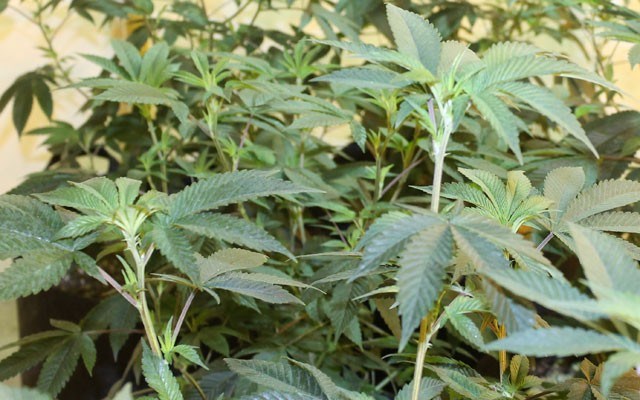Canada's ninth licensed commercial medical marijuana company has been approved, and the Function Junction-based operation is a homegrown Whistler business in more ways than one.
"I was extremely happy (to be licensed) and overwhelmed at the amount of interest," said Whistler Medical Marijuana Company (WMMC) founder Chris Pelz, adding that the company will begin servicing hundreds of expected patients once the first yield of cannabis is ready for delivery March 22.
Pelz is working with professional agrologist Peter Doig to develop pioneer strains using certified organic inputs, from fertilizers to biological disease and pest management methods.
They've also committed to using mother plants that will only be cloned once during production, which Doig said will result in higher quality cannabis that's less susceptible to fungus, and produces a higher level of cannabinoid — a naturally occurring chemical compound in the cannabis plant that's been found to have numerous medicinal properties.
WMMC was given the green light to begin production and distribution of medicinal cannabis at its 10,800 square foot industrial facility after meeting Health Canada's stringent security and quality requirements.
This comes just weeks before the country's new Medical Marihuana for Medical Purposes Regulations (MMPR) go into effect, turning over the production and distribution of medicinal pot to federally approved commercial operators. Under the current regulations, which expire April 1, the roughly 38,000 Canadians licensed to possess medicinal marijuana are permitted to produce their own pot, or source it from approved small-scale home growers.
Under Ottawa's new program, commercial producers will have the option to irradiate their cannabis in order to eliminate potential mould spores and bacteria, a measure that many medicinal marijuana users have criticized, and one that doesn't jive with Whistler Medical Marijuana Company's vision.
"What we've developed here is an organic alternative to medicinal cannabis," Doig said.
To start, WMMC will offer four different strains, with the goal of expanding to 20 in the future.
The facility will be equipped with 260 grow lights that will eventually yield 23 kilograms of cannabis every three weeks, Pelz said. The company will distribute directly to patients via registered mail, and Pelz said hundreds of people across Canada have already expressed interest in his products. Even the response from the majority of community members who don't use medicinal marijuana has been "very supportive," added Pelz, who credited the open-mindedness of his landlord, Don Wensley, for allowing him to get the business off the ground from Function.
Municipal staff, meanwhile, expects to draft a zoning amendment bylaw this year in order to regulate the commercial production of marijuana in the resort. While the bylaw could regulate the future location of approved grow operations in the community, Pelz is confident his licensed facility will meet the requirements. The current zoning for his grow facility allows for a greenhouse.
Whistler's mayor and former fire chief have raised issues with the closure of 18 licensed home grow-ops in the community ahead of April's new regulations, saying Health Canada lacks the authority to ensure these homes cease production and meet health standards. Other leaders in the province, including Abbotsford Mayor Bruce Banman and Mission Mayor Ted Adlem, have been vocal in their criticism of the current program's shutdown, saying there doesn't seem to be a plan in place to effectively deal with the 13,374 licensed marijuana producers in B.C.
Health Canada said it will provide all licensed home growers with instructions on how to dispose of any remaining cannabis or marijuana plants, and expects patients to comply with all applicable municipal, provincial and federal laws.
On the flipside, many medicinal marijuana users have been vehement in their criticism of Ottawa's new MMPR program, saying the commercialization of medical pot production will prove too costly for some patients and will hamper their access to specific strains that treat their condition effectively.
Licensed producers will have the ability to set their own prices, with federal officials projecting the average price per gram under the new regulations to be $7.60, below the $1 to $4 cost many home growers have been able to achieve cultivating their own pot, and the $5 per gram Health Canada has set for contracted growers under the existing program.
Pelz, who said the price for his products would start at $10 per gram, thinks the "voices of many" in Canada supporting marijuana use will eventually push the provincial government and health insurers to subsidize patients' medicinal cannabis.
The founder of WMMC also outlined his vision for the company as a community-minded operation that puts the quality of its product first and foremost.
"What it won't be is a mega facility attached to some investment banker's... dream," he said. "What it will be is a locally owned and operated business that employs up to a dozen people and, certainly as the owner, I hope it remains a business based here in Whistler for the next 50 years."
Visit www.whistlermedicalmarijuana.com for more information.




